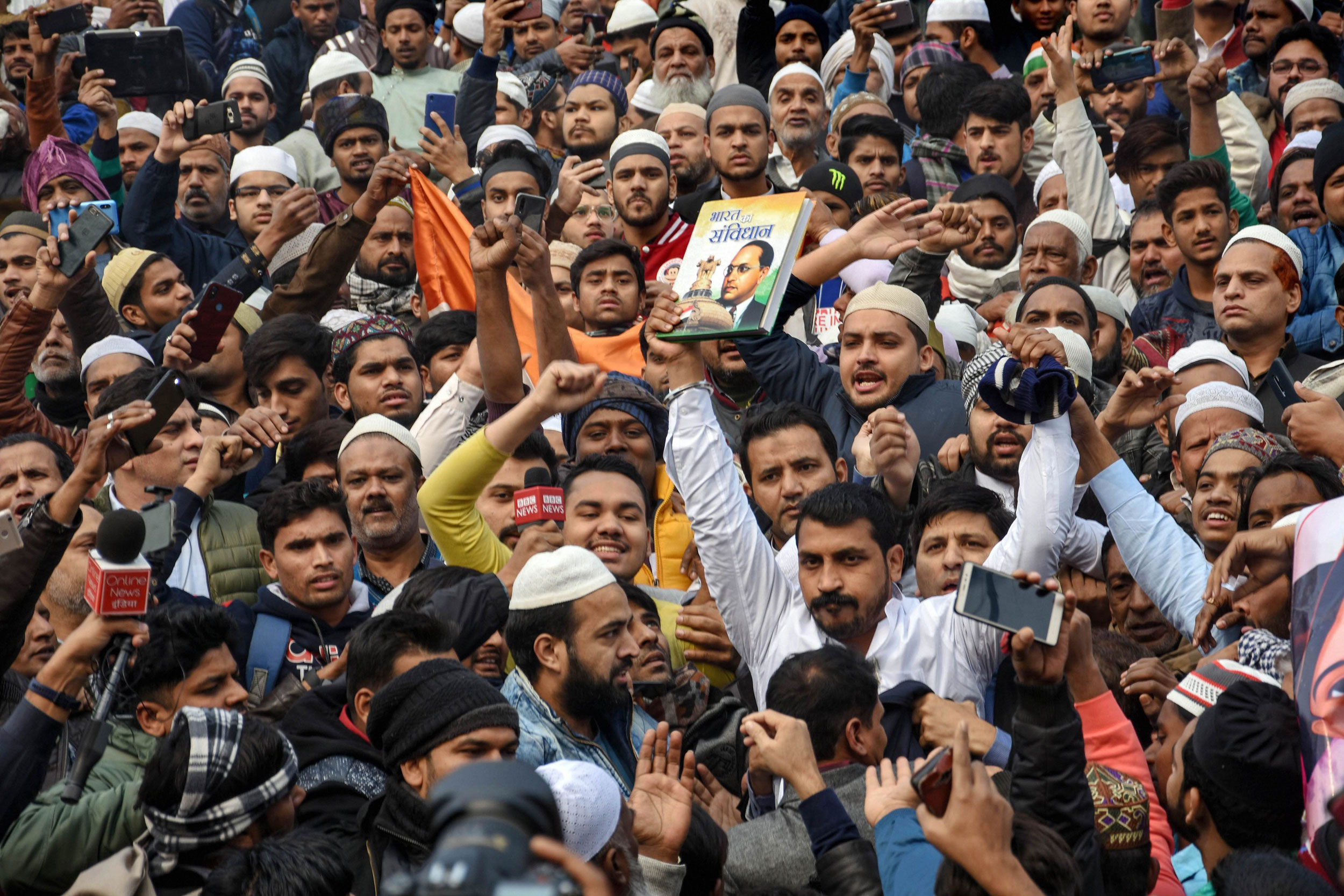A Delhi court on Wednesday granted bail to Bhim Army chief Chandrashekhar Azad with several conditions, including a bar on visiting the national capital for four weeks.
Kamini Lau, the additional sessions judge in Tis Hazari court, said Azad should not commit “similar offences” and should desist from visiting Delhi until the Assembly elections ended next month.
Azad’s lawyer Mehmood Parcha called the order “unique and unprecedented”. Bhim Army spokesperson Kush Ambedkerwadi said the order would be challenged.
“The court has granted bail. But the conditions are unique and unprecedented. We are fighting against the curtailment of freedom of speech. This order curtails the freedom of speech. We will seek a modification of the order from the same court,” Parcha said.
The court order said “the applicant/accused, who is neither a permanent resident nor an elector in Delhi, shall not visit Delhi for the next four weeks”. The court allowed Azad to visit Delhi for treatment during this period.
Delhi police contended that Azad had taken part in a dharna near the Jama Masjid on December 20 against the Citizenship (Amendment) Act and the proposed National Register of Citizens. Permission had not been given for the dharna.
The police pleaded that Azad had delivered an inflammatory speech at the site, after which the crowd moved towards Jantar Mantar and later vandalised public property and injured 17 cops.
Lau wrote in the order that the “fundamental right to peaceful protest is guaranteed by the Constitution, which cannot be curtailed by the state…. While exercising our right to peaceful protest, it is our duty to ensure that no corresponding right of another is violated and no inconvenience is caused to anyone.”
The order added: “Violence or destruction of property is totally unacceptable and for any kind of damage to private or public property during the protest, it is the organisers who would be responsible for the said damage and liable to compensate for the said loss.”
No assessment of damage has been made till date, the order noted. It added that there was no direct evidence so far to connect Azad with damage to public property.
The bail order asks Azad to mark his presence before the station house officer of the police station at Fatehpur in Saharanpur, his home district in Uttar Pradesh.
Supreme Court lawyer K.V. Dhananjay expressed surprise at the conditions. The magistrate’s concerns should be about imposing the twin conditions that the accused must not commit any of the offences he is accused of, and would cooperate with the investigation, he said.
“If the accused wants to stay back in Delhi and do any of the million lawful things an ordinary citizen would want to do, including addressing the voting public about the CAA or the NRC in whatever capacity”, he should be allowed to do so, Dhananjay said.
On Tuesday, Lau had come down heavily on the Delhi police, saying citizens had the right to protest.
In Wednesday’s order, the judge quoted Rabindranath Tagore’s “Where the mind is without fear and the head is held high.…”
Ambedkerwadi said the logic offered by the court on Tuesday and Wednesday did not support the conditions put in the bail.
“The court yesterday observed that the Jama Masjid was in India and that every person has the right to protest there and read the Constitution there. Today, the order quotes Tagore’s lines…. How can Azad reach the Jama Masjid without coming to Delhi? This order does not support the court’s observations,” Ambedkarwadi said.











